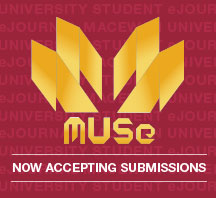The White Lie of Persuasive Communication
A Rhetorical Ethics Argument
DOI:
https://doi.org/10.31542/muse.v5i1.2039Abstract
The following is a personal manifesto of the state of 21st-century rhetoric. Rhetoric is so intrinsically bound into all aspects of life and all communication environments that it appears inevitable to communicate by using some form of rhetoric. Though, the ethical nature of rhetoric comes into question when we consider the ways rhetoric might be used for good and for evil. This article explores the ethical state of rhetoric today — what it should or shouldn't be, where rhetoric went right and where rhetoric may have gone wrong, and if the current rhetorical state is our reality, our dream, or our nightmare. First, by establishing rhetoric as a persuasive communication strategy that can be easily learned and both innocently and connivingly used, this article then explores if or how rhetoric can be used in "right" and/or "wrong" ways, and what this means for the present and future state of rhetoric.
This article was written as an end of term paper in a classical and modern rhetoric course.
References
Downloads
Published
Issue
Section
License
Copyright (c) 2021 Jaime Bergum

This work is licensed under a Creative Commons Attribution-NonCommercial 4.0 International License.
By publishing works in MUSe, authors and creators retain copyright under a Creative Commons Attribution NonCommercial (CC BY-NC) license, which allows others to share these works for non-commercial purposes as long as credit is given. The MUSe Editorial Board reserves the right to make copy-editing changes to works prior to publication to ensure they conform to the publication's style and quality standards. The Editorial Board also reserves the right to archive published submissions in MacEwan University's institutional repository, RO@M.



